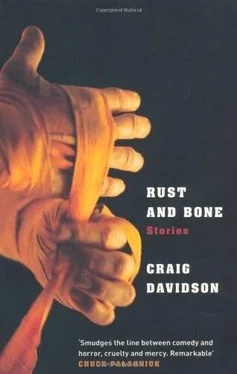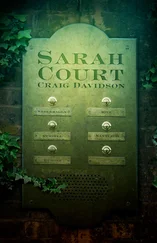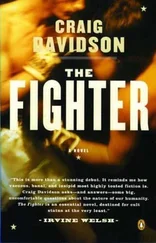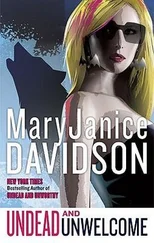[3]
Herbert T. Mallory, Jr.’s house occupied a barren patch of scrubgrass on the banks of the Welland Canal. A towering Gothic monstrosity adorned with carving and scrollwork, parapet flanked by a pair of hideous granite gargoyles, it was truly more castle than house. The yard was fenced in by a crumbling brick wall topped with iron pikes and, at the front, a massive gate closing in the middle to form the letters HTM, the T splitting in half when the gates opened. The tangle of satellite dishes strung around the topmost parapet resembled toadstools sprouting from a tree stump. It seemed very much the kind of looming, creepy place children would delight in visiting on Halloween, but unfortunately Halloween was among the many holidays Herbert now refused to celebrate.
Jess parked her Jeep TJ on the rough shale outside the gates. Away to her left, the canal lift-locks rattled and groaned. How could Herbert bear that noise?
Thin rosy sunlight washed the stricken brown lawn and reflected off the cardinal-red paint job of Herbert’s Jaguar X80—though, to the best of Jess’s knowledge, her brother didn’t drive. A tentworm-infested elm, shrouded from trunk to highest branch in gray cobweb skin, shadowed the car. The mummified tree brought to mind images of a cocoon on the verge of birthing some enormous prehistoric bug. The infestation had progressed for years, Herbert not lifting a finger in opposition: the concept of a large imperious entity destroyed by a swarm of unrelenting smaller entities suited his socialist leanings.
Jess climbed the worn stone steps. Music through the screen door, a gloomy dirge.
“Who is it?” a voice answered her knock.
“Jess.”
After a formidable pause: “Door’s open.”
She walked down the tight hallway strung with photographs of her brother levitating with Doug Henning and bending spoons with Uri Geller, astraddle one of Siegfried and Roy’s white Bengals. Hung amidst the photos were posters advertising Herbert’s stunt spectaculars: The Water Torture Cell Escape, The Vanishing CN Tower, and the ill-fated Buried Alive. Music came from everywhere and nowhere at once; judging by the mournful caterwauling, Jess speculated the composer was prone to fits of deep depression.
The kitchen was a high-ceilinged room smelling of Cup-a-Soup and old newspapers. Greasy wallpaper and dull wooden molding transformed any light into gloom, and the tall narrow windows, smudged with lampblack, allowed little sunlight to filter through anyway. The air was dank and smoky, unnaturally so, as though a fog machine were pumping away in secret. A pyramid of television sets tuned to different stations climbed the right-hand wall.
“Good afternoon, sis.”
Herbert sat at a table strewn with piles of candy: jujubes and jellybeans, licorice whips, gummy bears. His slender frame was draped in a fur-trimmed robe; a tawny thatch of hair sprouted from the robe’s open throat, matching the unruly mop atop his head. A few ropes of hair were plastered wetly to his skull, as if, hearing Jess’s knock, he’d hurried to make himself presentable. Silver-rimmed glasses gave his face an antique aspect at odds with his age: thirty-three. He peered at Jess with the doleful expression of a man who’d recently quit drinking and, life robbed of whatever false pleasure it once held, now existed in a state of perpetual sorrow.
Jess sat. “Sam said you wanted to talk.”
“Yes,” he said. “Yes, I do.”
Herbert tented his fingers and pressed them to his lips. His fingers were long and tapered though quite gnarled, recalling the braided roots of a mangrove tree. He reached out and plucked a red jellybean from a pile, turning it over the way a gemologist might inspect a fire opal.
“And …?”
“I’m getting to it.”
Jess felt a familiar anger rising.
No creature on earth was more self-absorbed than a magician. Trust-fund beneficiaries, dowager princesses, prima donnas of every stripe—not in the same league . It was a lifelong predisposition, a certain stirring in the bosom of an infant boy as he witnessed his nose plucked from his face and wiggled between someone’s fingers. Boys who grew up to be magicians learned the power of mystery early on, became brokers in secret knowledge. The problem was, they tended to overindulge this power, which led, in Jess’s case, to an endless procession of scenes similar to this one in 1976:
“Pass the pepper, Dad.”
“What pepper, Jessica darling?”
“The pepper that was on the table a minute ago.”
“Well, it’s not there now, is it?”
“You palmed it.”
“Palmed it? My dear, palming’s a shameless trick practiced by street-corner hustlers.”
“Fine. You made it vanish.”
“Perhaps so. Say the magic word and I’ll make it reappear.”
“Please.”
“The butcher says please, darling. The garbage man says please .”
“Ugh. Floobidoo .”
Moments later she’d feel the pepper mill’s sudden weight in her pocket. The first time was amusing. The second time, less so. Times three through three thousand were abject misery. Which was why, as her brother milked the moment as her father had, Jess snapped, “Turn this horrible music off.”
“You don’t like it?”
“Another minute and I’ll slit my throat.”
Herbert hunted through the jumble of remote controls at his elbow, found the corresponding unit, pushed a button.
“Now,” Jess said, “what the hell is going on? ”
Herbert rooted through a sagging tower of newspapers—copies of the St. Catharines Standard, New York Post, Calgary Herald, a dozen more—coming up with a section of the Sault Ste. Marie Star . “Look.”
The local news headline read: Magician Dazzles Patients at Institution . A grainy black-and-white snapshot captured a tuxedo-clad man in mid-flourish, a loose horseshoe of housecoat-clad and wheelchair-bound spectators gathered round. She squinted at the photograph intensely, until the image dissolved into its composite black-and-gray dots.
“So?”
“ So? It’s him! The magician—Dad!”
“I can see that.”
“Oh, I see. You don’t care, is that it?”
Why should she care? He’d forsaken them. It took two years to convince Herbert he hadn’t banished him to a horrible parallel universe, two years during which Herbert suffered nightmares of his doomed pater reeling and shrieking in a fathomless void. Jess had developed a pragmatic outlook: some fathers skipped out for cigarettes and never came home; her father stepped into a tea chest and vanished. Though carried off with more panache than the average abandonment it remained a crude and everyday act. “Same shit, different dad,” she’d told friends.
“You have no desire to contact him? None whatsoever?”
“He’s no part of my life. He left us.”
“The man had his reasons.”
“Don’t start on that again.”
“He did, ” Herbert persisted. “He was driven into hiding by vengeful magicians upset about the book.”
That damn book . The only renown Herbert T. Mallory, Sr., ever garnered came with the publication of Hexers, Charlatans, and Miracle Mongers: An Exposé . A compendium of “fakeries,” the book revealed the science and deception behind illusions practiced by inner-city con men, India’s famed god-men, and famous stage magicians. It was purchased by skeptics, hustlers, and the type of people who delighted in peeking through keyholes or leafing through strangers’ diaries.
“What are you talking about? What did anyone ever do? ”
“Well,” Herbert picked a fluffball off his robe, “what about the prank phone calls? And the time our house was egged?”
Читать дальше












